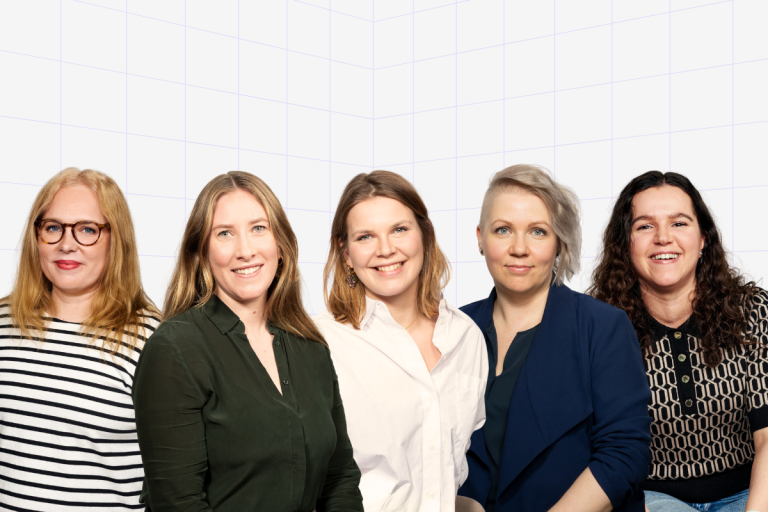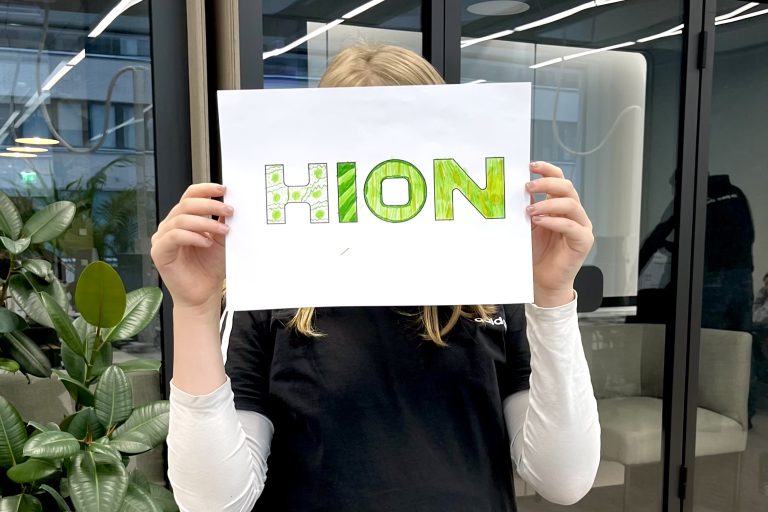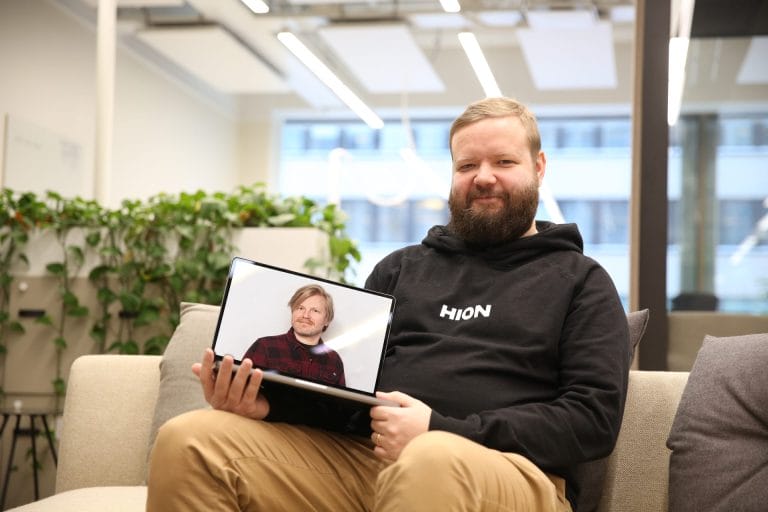
Culture
All Roads Lead to the IT Industry - Career stories and tips from women at Hion
Hion
We asked the women of Hion how they ended up in the field, and collected their golden tips for the journey.
The paths of Hion’s women into the IT industry are diverse and reflect the versatility of the field. Some of the interviewees discovered their passion for technology at an early stage, while others transitioned into the industry later in their careers. What they all have in common, however, is a desire to develop, learn new things, and influence the future of the digital world.
Some of the interviewees have independently studied and developed their skills since childhood, some have pursued studies in the field at colleges and universities, and some have ended up in the industry driven by interest, chance, or necessity. Many also emphasize their desire to help people and make digital services more user-friendly and accessible. Behind this is also a drive to promote ethics, diversity, and environmental responsibility within the industry.
For Katja Vakula, Chief Design Officer at Hion, it was self-evident that the technology sector was her calling, as she had engineers in her family.
“I didn’t see anything special about applying to the technology field as a woman. It wasn’t until my student days that I heard only 30% of the students at TKK (now Aalto University) were women. My education was in bioproduct technology, but I ended up in the digital world and design through my own interests. So, I’m in my current job because I wanted to create more useful, usable, and delightful digital services for people. Now, meaningfulness comes especially from responsibility.”
Our Design & Sustainability Lead, Tea Dickman, first studied media and then went on to earn a Master of Arts – originally, her drive to enter the field stemmed from the need to help people by designing more user-friendly services, thereby promoting equality in online services
“I’m interested in helping those users who, from the outset, have challenges accessing services, and in facilitating how diversity is reflected in the digital world. People who find digital services inaccessible may often be excluded from decision-making and services.”
Senior Designer Jenny Järvinen ended up in the field through industrial design, and also holds a degree in educational sciences. During her studies, Jenny became particularly interested in organizational design, behavioral change, and influencing it.
Tech Lead Tiia Ohtokallio, in her own words, has been a “nerd since childhood” and has always known that she would become an engineer when she grew up.
“I made my first websites when I was about 9 years old, and a couple of years later I started coding for the first time with PHP, and later also with JS. After comprehensive school, I pursued a dual qualification as a data technician; it was actually the closest thing to ‘IT field’ studies that was offered at the secondary level at that time. There were as many as 5 girls and probably 20 boys in the group. I continued my studies to become an engineer.”
Test Engineer Heli Köck’s first encounter with the field occurred in her teens, building and maintaining her entrepreneurial parents’ websites. IT studies were already on her mind after comprehensive school, but she ultimately found her way into the industry through the retail sector.
“I started studying to become a data specialist during the first COVID spring. Since I already had practical experience, I quickly found a job in the IT industry alongside my studies.”
People and Office Specialist Johanna Huovinen, on the other hand, joined our People team after a career change and commercial college studies.
“I specifically applied for work placement at IT companies because they invest in employee well-being, benefits, and workplace flexibility.”
Tips for those considering a career change to the IT industry
Hion employees emphasize the importance of multidisciplinary skills and encourage networking with industry professionals. Mentoring programs, recruitment events, and leveraging LinkedIn for networking can provide valuable support and guidance for those entering the field.
“I believe in the power of networks. Apply for a mentoring program or boldly ask for advice from someone you follow on LinkedIn, for example. It’s never too late to change fields. Regardless of your studies, you can always learn other skills that aren’t your core area of study.” – Katja Vakula
“It’s worth utilizing training programs, such as Digia’s Career Compass, and also actively networking and attending industry recruitment events. You never know who that contact might be that gets your foot in the door.” -Tiia Ohtokallio
Hion employees also remind us that the IT industry is broad and offers many different career paths. In addition to coding, there is a need for experts in areas such as design, management, and analytics.
“If you’re interested in the development of the digital world, there are very different career paths, from game design to the design and development of complex systems, and even management roles. There are many routes to becoming a digital designer. I know people in the field who come from backgrounds as industrial designers, engineers, graphic designers, or humanists.” -Tea Dickman
In the IT industry, particularly in software and application development, degrees have traditionally not held great significance, except in the public sector. However, degree studies can offer a smoother start to learning.
“The advantage of a university of applied sciences or university education is that the studies are at least somewhat guided, and there is a teacher who outlines the key learning points. If you study independently, you first have to figure out what those key learning points are before you can start learning them.” – Tiia Ohtokallio”
“Additionally, degrees usually include internships, and it’s easier to get an internship when you are a degree student. It’s currently difficult for juniors to break into the industry, and finding that first job can be challenging.” – Tiia Ohtokallio
Developers, and designers alike, should keep their portfolios up to date. A portfolio allows you to showcase your skills and interest in the field.”
Curiosity, continuous learning, and the courage to take on new challenges are important qualities for success in the IT industry.
“It’s good to be curious and willing to learn new things constantly; after all, it’s a continuously evolving field. It’s also important to remember that our clients represent various sectors, and experience in their fields can bring added value to the IT company where you work. And you learn and develop along the way.” – Johanna Huovinen”
“It’s also worth saying yes to new opportunities, even if they’re a bit daunting, because that’s how you can discover career paths you might not have initially considered.” – Heli Köck”


